tracing visual histories in Perú from the sixties to the present
In conversation: Teresa Burga, Miguel A. López and Sharon Lerner.
Moderator: Florencia Portocarrero
Thursday 15 September, 7:30pm
Proyecto AMIL, Lima
Known for his subtle and intimate works, Richard Tuttle has been a highly influential figure in the international contemporary art scene for more than 40 years. Although his practice has followed its own unique path, much of his work is associated with the post-minimalism and process art that prevailed in the American art scene in the 1970s. These movements in themselves were a result of a series of political and social transformations; namely, the transition from an industrial to a service economy, the Vietnam war and the counter-cultural movements.
Locally, the questioning of traditional systems of representation in favour of concepts and ideas, or just processes, saw its peak with the artistic collective Arte Nuevo and the reflections of the art critic Juan Acha on "non-objectualism". But what were the social factors that triggered such processes of dematerialization of the artwork in Perú? How did our local context transform the formal guidelines of these movements? And, more importantly, did these experiences mark the future of Peruvian art?
In the context of al Cielo de Noche de Lima / to The Night Sky of Lima, Richard Tuttle’s two-part exhibition, the Museo de Arte de Lima - MALI and Proyecto AMIL invite Teresa Burga (artist and former member of the artistic collective “Arte Nuevo”), Sharon Lerner (curator of contemporary art at the MALI) and Miguel A. López (chief curator at TEOR/éTica) for a conversation about the influence of the second artistic vanguards in Perú.
TALK
Vernacular vanguards
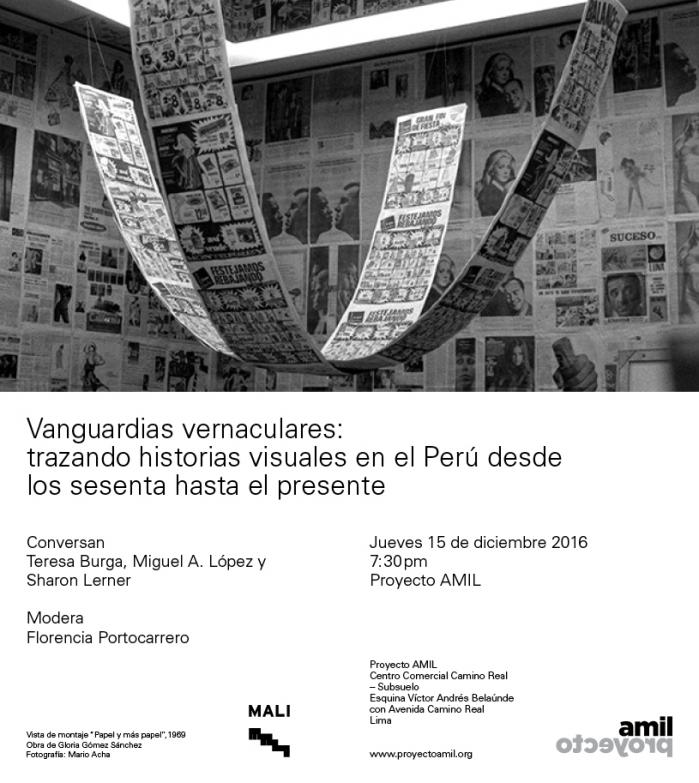
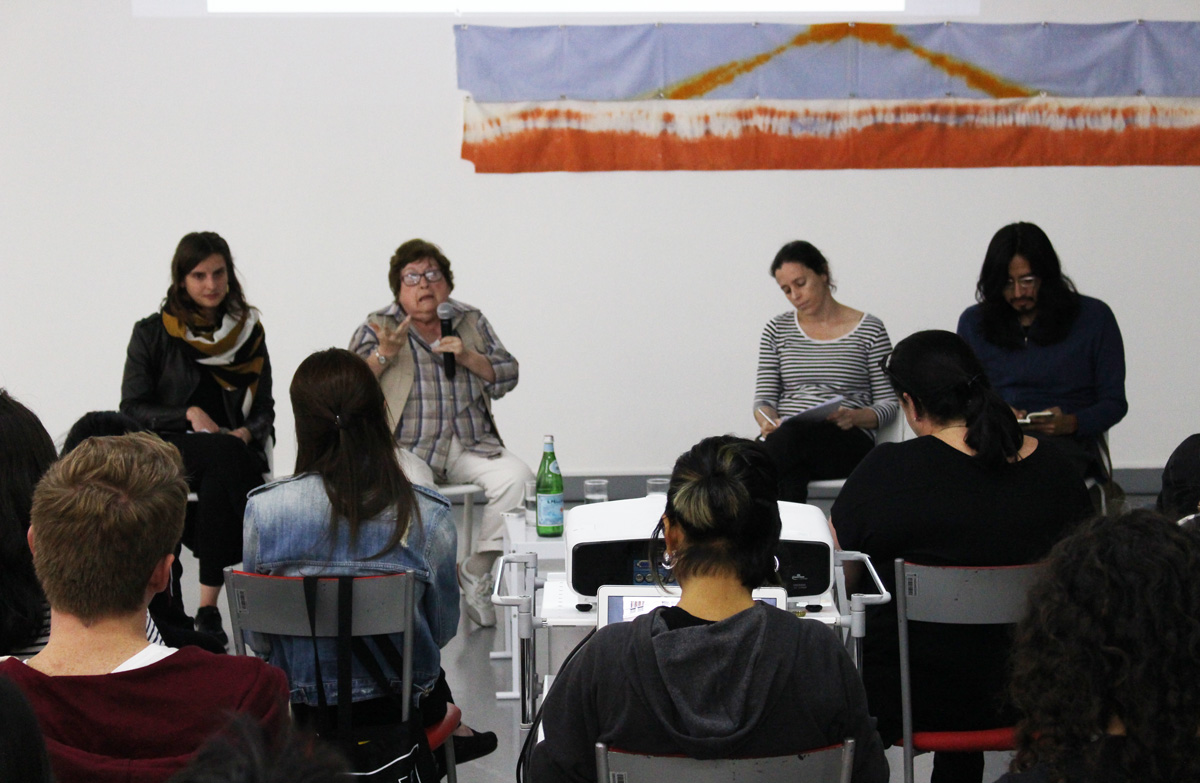
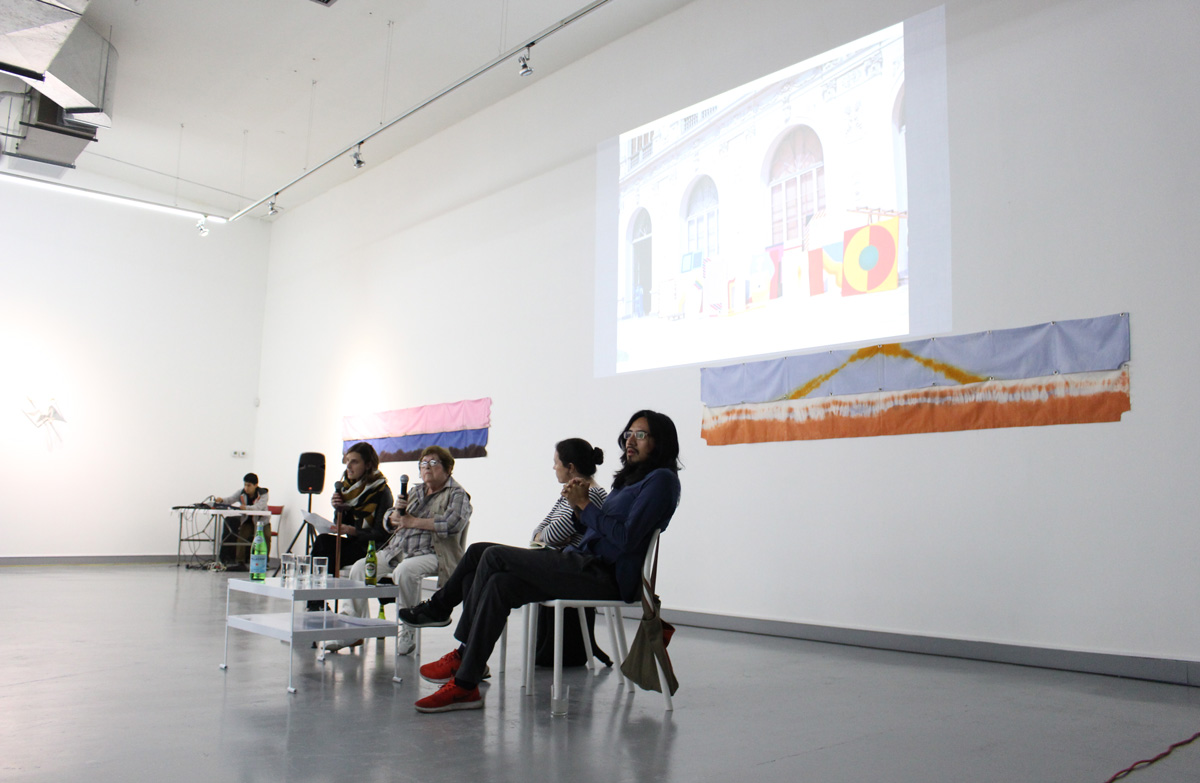
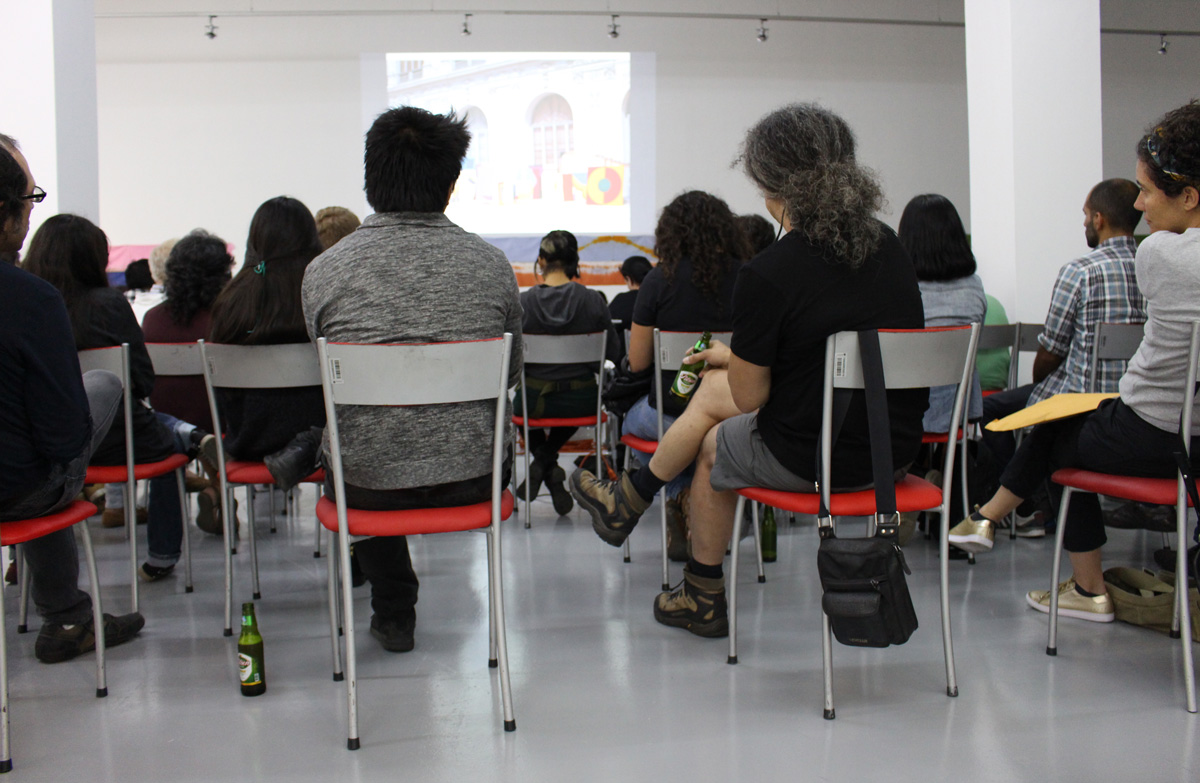
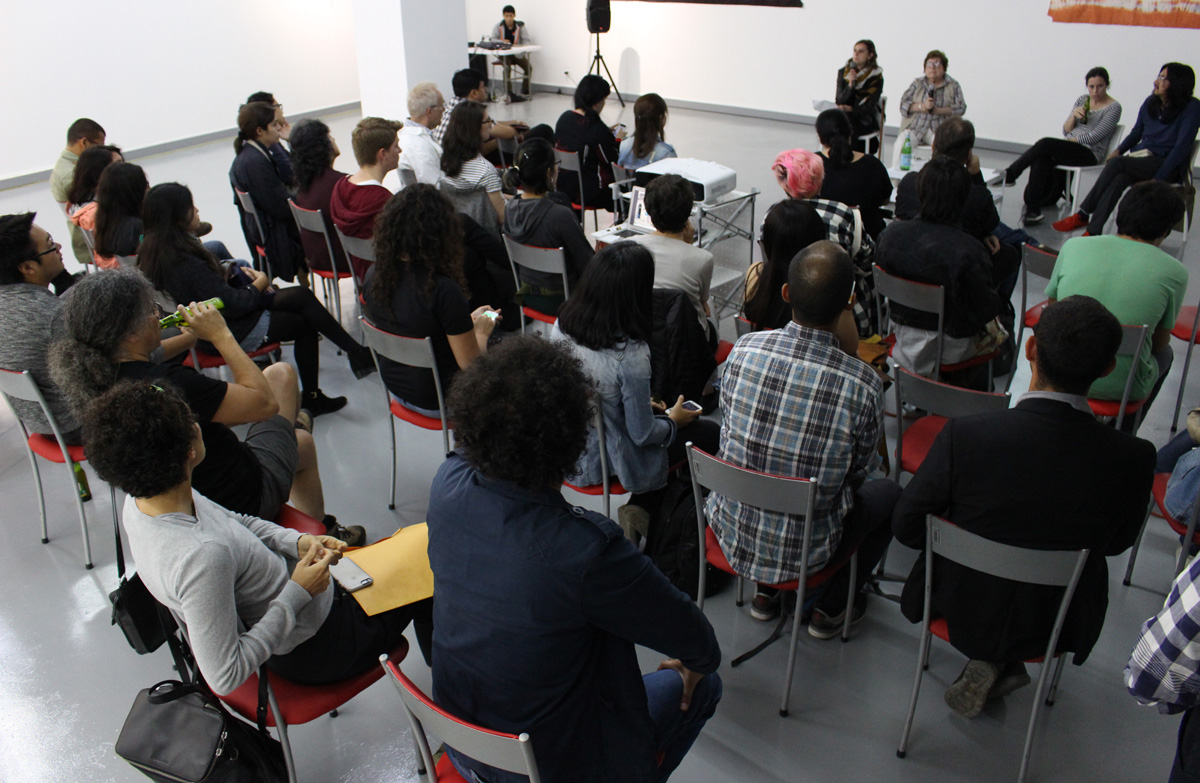
CHARLA
Vanguardias vernaculares
trazando historias visuales en el Perú desde los sesenta hasta el presente.
Conversan: Teresa Burga, Miguel A. López y Sharon Lerner.
Modera: Florencia Portocarrero
Jueves 15 de Diciembre, 7:30pm
Proyecto AMIL, Lima
Conocido por sus trabajos sutiles e íntimos, Richard Tuttle ha sido una figura muy influyente en la escena del arte contemporáneo internacional durante más 40 años. Si bien no se puede afirmar que su obra ha seguido un derrotero único; mucho de su trabajo se inscribe en la estela del pos- minimalismo o arte del proceso que primó en la escena norteamericana en la década del 70 como consecuencia de una serie de transformaciones políticas y sociales. A saber, el paso de una economía industrial a una economía de servicio, la guerra de Vietnam y los movimientos contraculturales.
Localmente, el cuestionamiento de los sistemas tradicionales de representación en favor de conceptos e ideas, o simplemente de procesos, tuvo su momento cumbre con el colectivo Arte Nuevo y los escritos del crítico de arte Juan Acha sobre el “no objetualismo”. Pero, ¿cuáles fueron los factores sociales que desencadenaron tales procesos de desmaterialización de la obra de arte en el Perú?, ¿de qué manera el contexto local transformó las directrices formales de dichos movimientos? y ¿acaso llegaron estas experiencias a marcar el devenir artístico peruano?
En la contexto de al Cielo de Noche de Lima / to The Night Sky of Lima, la exposición en dos partes del artista estadounidense Richard Tuttle, el Museo de Arte de Lima- MALI y Proyecto AMIL invitan a Teresa Burga (artista y ex integrante del colectivo Arte Nuevo), Sharon Lerner (curadora de arte contemporáneo del MALI) y Miguel A. López (curador en jefe de TEOR/éTica) a una conversación en torno la influencia de las segundas vanguardias artísticas en el Perú.
